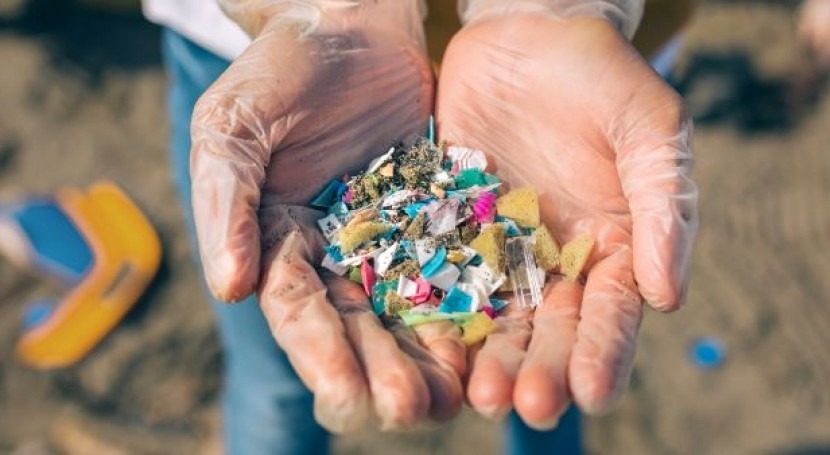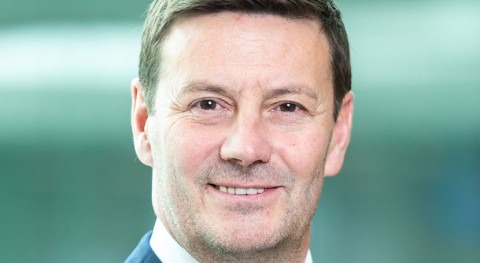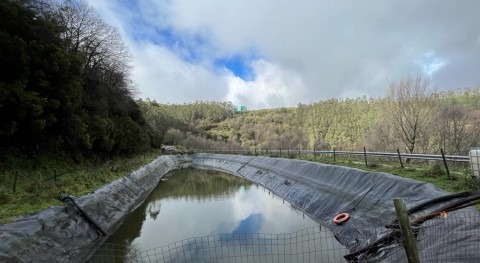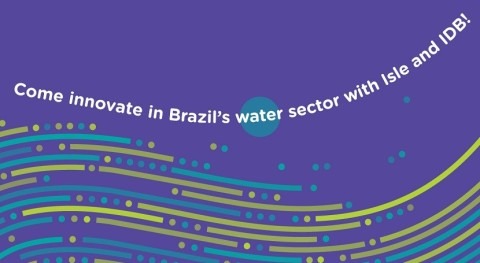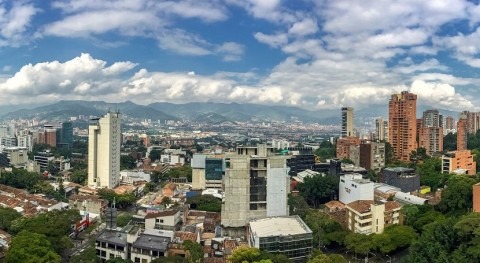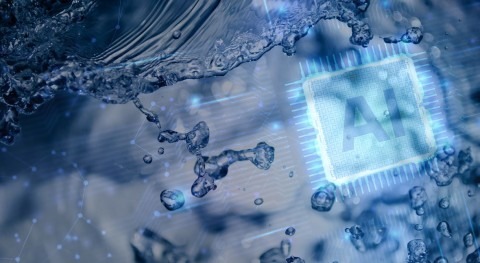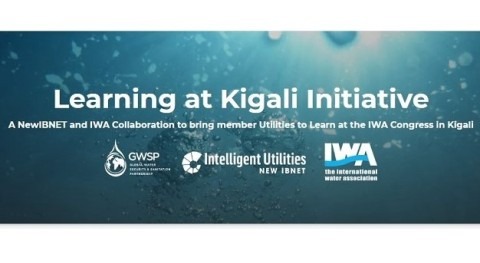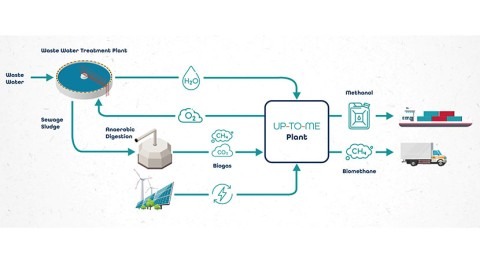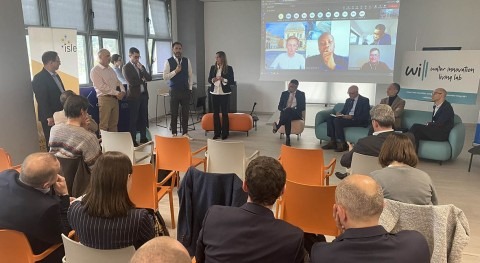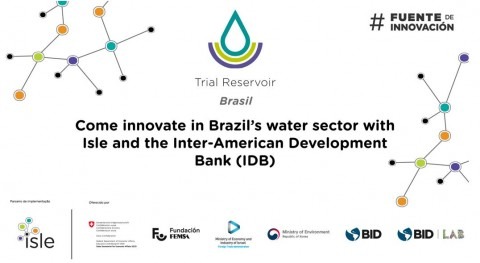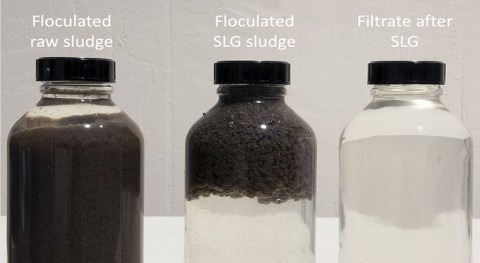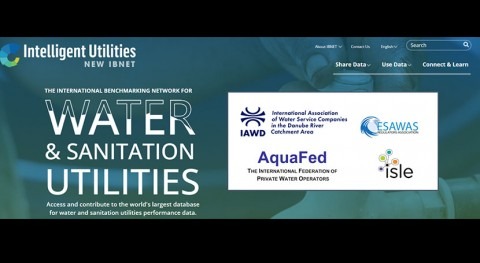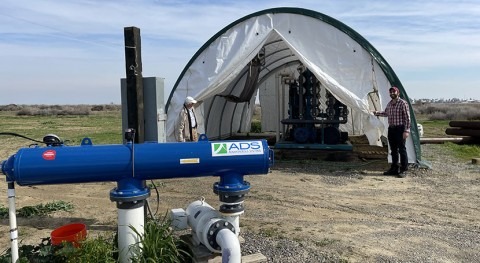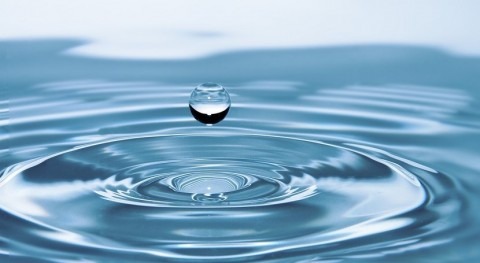With concerns mounting over the potential impact micropollutants such as microplastics have on the environment and human health, this was the focus of last month’s Water Action Platform webinar, which took place on 16 December 2021.
Hosted by Isle chairman Dr Piers Clark, the event explored innovative ways to measure, monitor and tackle micropollutants.
“Micropollutants are very difficult to treat in water and wastewater treatment works because they are emerging, or novel,” explained Isle’s Dr Jo Burgess.
“Conventional processes weren’t designed to treat micropollutants and current biological systems can’t recognise them. Similarly our increased use of ‘macro ’plastics, such as face masks and gloves during the pandemic has increased the amount of microplastics in our water.”
Technologies on show included Wasser 3.0 - a “jaw-dropping” method to remove microplastics from wastewater and Pharem Biotech, who have developed a low-cost way to remove organic pollutants using special sand.
The event explored innovative ways to measure, monitor and tackle micropollutants
Pete Vale, carbon and circular economy architect at UK utility Severn Trent discussed the challenges water utilities face in tackling microplastic removal while trying to achieve net-zero carbon emissions.
“Traditionally our response to new standards has been to bolt a number of treatment processes onto our works that are often quite energy intensive, so the challenge is to find effective ways to remove micropollutants but without impacting our carbon emissions,” he explained.
By self-generating energy and using innovative technologies that can treat sewage for micropollutants effectively, the sector will be in a good position to tackle the issue of micropollutants while still working towards net zero, suggested Vale.
Sand solution to organic pollutants
A novel system for the targeted removal of organic micropollutants was presented by Pharem Biotech from Sweden. The release of manmade organic pollutants, such as pharmaceutical residues, plastics and pesticides, is a growing concern because they can contaminate marine habitats and waterways via wastewater streams.
Pharem Biotech’s enzyme-based wastewater treatment solutions are targeting this problem and preventing such pollutants from being released into waterways after the wastewater treatment process. The company’s technology platform Zymatic uses natural degradation agents such as enzymes to treat wastewater at treatment plants and in industrial systems.
During the process, enzymes are attached to a carrier - Zymatic sand - which targets the organic pollutants in wastewater. The Zymatic sand removes up to 90% of organic micropollutants from municipal water treatment plants and used sand material can then be disposed to landfill.
Pharem Biotech’s enzyme technologies are low cost and not bound to a single treatment mechanism, but can be tailored to treat various organic pollution challenges, which makes them flexible and effective for removing micropollutants.
Chief executive Martin Ryen said, “We believe everyone should be able to afford to do something for the environment and if we really want to make a difference with the environmental challenges then we need to make it affordable.”
A successful trial in Sweden showed the technology provides real cost-savings both in terms of capital expenditure and operational expenditure.
Circular thinking
With circular economy thinking at its heart, Wasser 3.0’s technology not only removes microplastics but also prepares recovered plastic for reuse, for example in construction.
A film about the company’s modular, filter-free process solution was presented by Dr Katrin Schuhen. Using a ‘clump and skim’ technique, the Wasser system clumps microplastic particles to particle composites using toxicologically harmless hybrid silica gels before being skimmed off.
Wasser 3.0 is a not-for-profit from Karlsruhe, Germany. Founded in 2020, the company blends materials science, water management and water technology to tackle the issue of microplastics and micropollutants.
“What Wasser 3.0 do with microplastics is simply incredible,” said Dr Clark. “Microplastics accumulate in sewage sludge, which is then often recycled to land as a fertiliser. If we can’t remove them they may bioaccumulate in the food chain, and that would put the recycling of sludge to land at risk. Wasser 3.0 provides a line of sight through this problem.”
Diving into the Trial Reservoir
Clark also provided an update on the Trial Reservoir (TR), a new initiative from Isle which was launched during last month’s Water Action Platform.
The TR is a ground-breaking project to help water utilities better serve their customers and protect the environment by fast-tracking innovation at no cost. It is a pool of money which Isle is giving to the water sector to fund trials anywhere in the world for technologies which will have a beneficial environmental outcome.
The TR is a ground-breaking project to help water utilities better serve their customers and protect the environment by fast-tracking innovation at no cost
Since its launch Isle has been contacted by more than 40 companies regarding partnerships, and aims to launch its first trials with technology companies Bio-Organic Catalyst and Orege in early 2022. In addition, the project has already garnered support from key agencies and organisations such as UK regulator Ofwat and the International Water Association.
“This brings together all the players needed,” said one TR sponsor, Paolo Zacchi, director of innovation at water technology company Xylem. “By bringing new technologies to market and removing financial constraints, partnerships between utilities and innovators can focus solely on solving their communities’ water challenges.”
The next Water Action Platform webinar takes place on Thursday, 20 January 2022 at 7.30am and 4.30pm GMT. Click here to sign up to receive the invitation.


